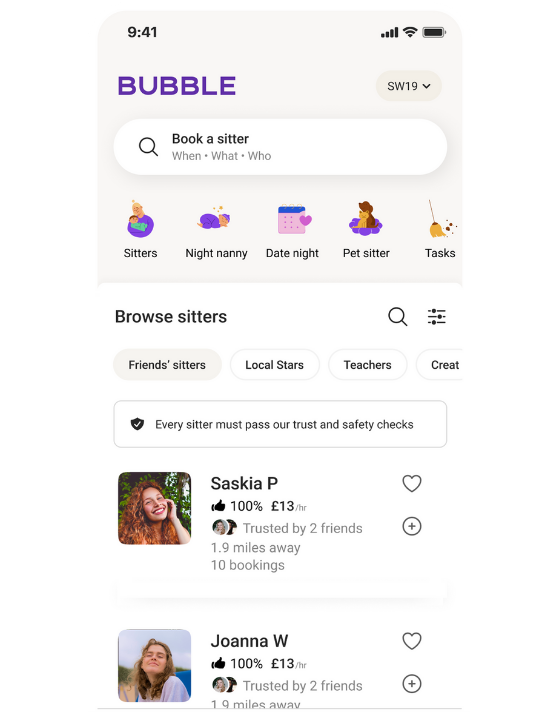Back to the Office: How to Build a Happy Hybrid Working Team

Expert help and advice

Find great childcare
Download the Bubble app to find and book childcare in as little as 30 minutes.
Download the Bubble app


Find great childcare
Download the Bubble app to find and book childcare in as little as 30 minutes.
Download the Bubble app